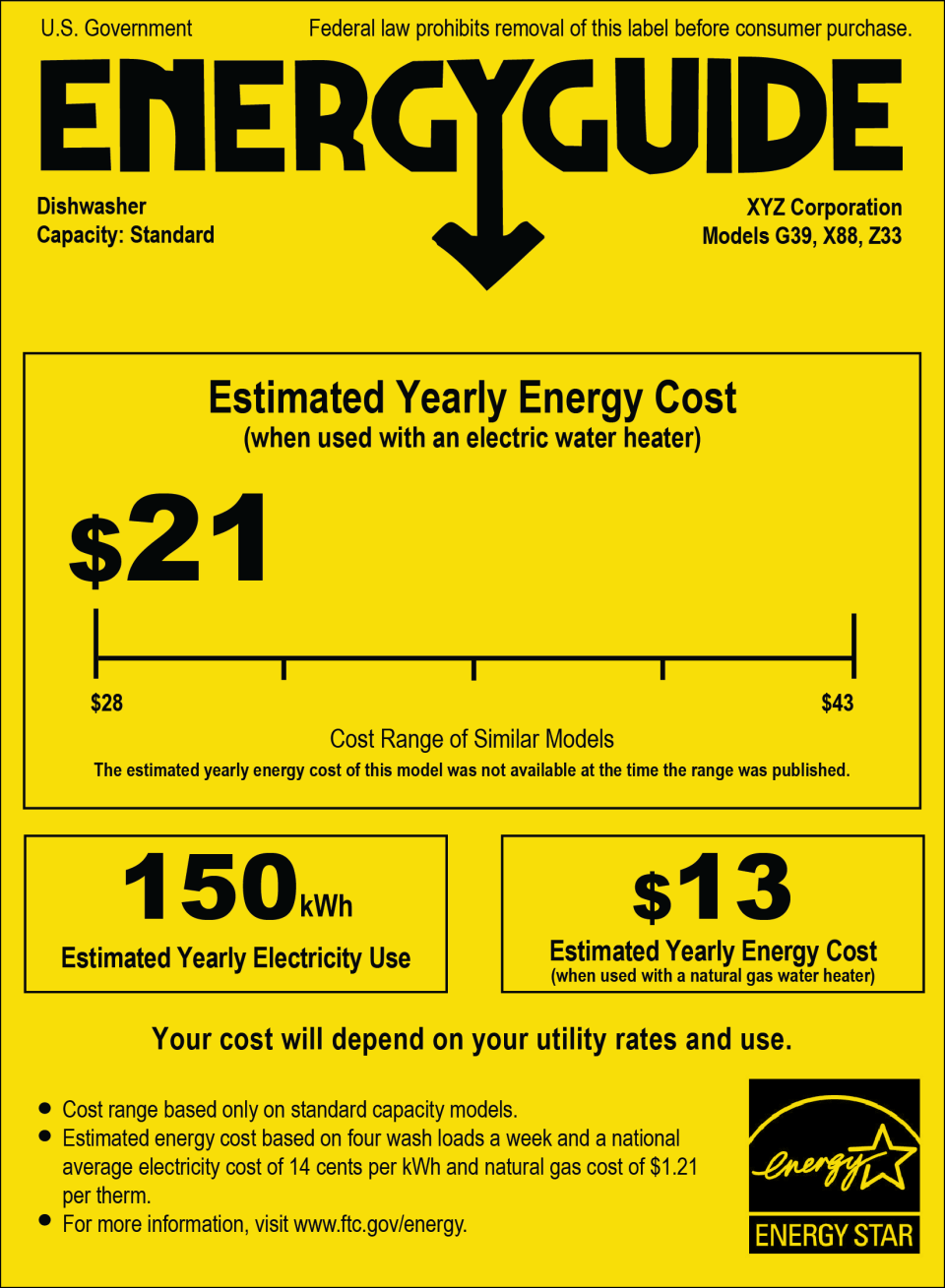EnergyGuide FAQs
How do I use the EnergyGuide label?
The EnergyGuide label lets you know how much energy an appliance uses and see how it compares to the energy use of similar appliances.
Even if an energy efficient appliance costs more to buy, it can save you money on your utility bills over time. Here’s an example of what you can find out from an EnergyGuide label:
Do all appliances have EnergyGuide labels?
No. Here’s a list of the ones that do:
- boilers
- ceiling fans
- central air conditioners
- clothes washers
- dishwashers
- freezers
- furnaces
- heat pumps
- pool heaters
- refrigerators
- televisions
- water heaters
- room and portable air conditioners
Is the estimated operating cost what I’ll likely pay each year?
No. It’s only an estimate, based on typical use and a national average price for energy. Your cost will depend on how you use the appliance and your local energy price.
What if I don’t see an EnergyGuide label on an appliance?
Look inside the appliance — the label might be there. Or check the seller’s or manufacturer’s websites.
What is the ENERGY STAR program?
The ENERGY STAR program encourages the use of energy-efficient products that protect the environment and save money. The ENERGY STAR label helps you identify high-efficiency models. To qualify for the ENERGY STAR, a product must meet energy efficiency guidelines set by the U.S. Environmental Protection Agency (EPA). Learn more at energystar.gov.
Is there anything else I should do or look for when I’m shopping for an appliance?
- Measure. You need a space that’s large enough for the appliance, lets you open the appliance door or lid fully, and has enough clearance for safe ventilation.
- Read reviews. Product reviews from experts can be helpful when you’re looking at appliances. Reviews can tell you things like how noisy they are, how much water they use, and how likely it is they’ll need repairs. Customers’ online reviews also can help you spot common complaints. Search for the company or product name with words like “review” or “complaint.” Read reviews from several sources.
Are there any other benefits to buying an energy efficient appliance?
Ask about special energy efficiency offers. Your salesperson or utility company might have information about cash rebates, low-interest loans, or other incentive programs in your area for people who buy energy-efficient products. Also visit the Database of State Incentives for Renewables & Efficiency for information about government- and utility-sponsored incentives.
For More Information
- Visit energy.gov and energystar.gov
- Check out the U.S. Department of Energy’s Appliance Energy Calculator

